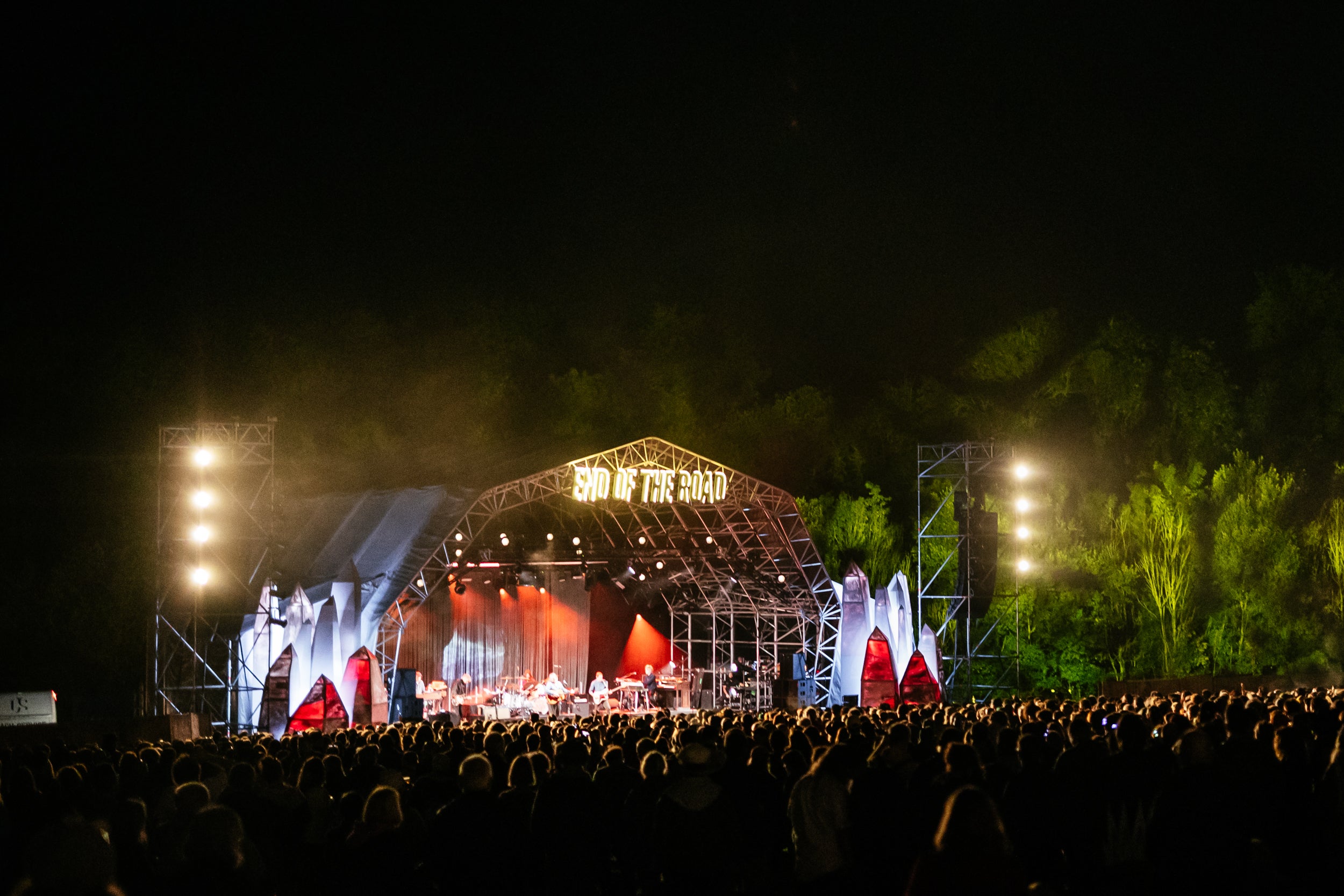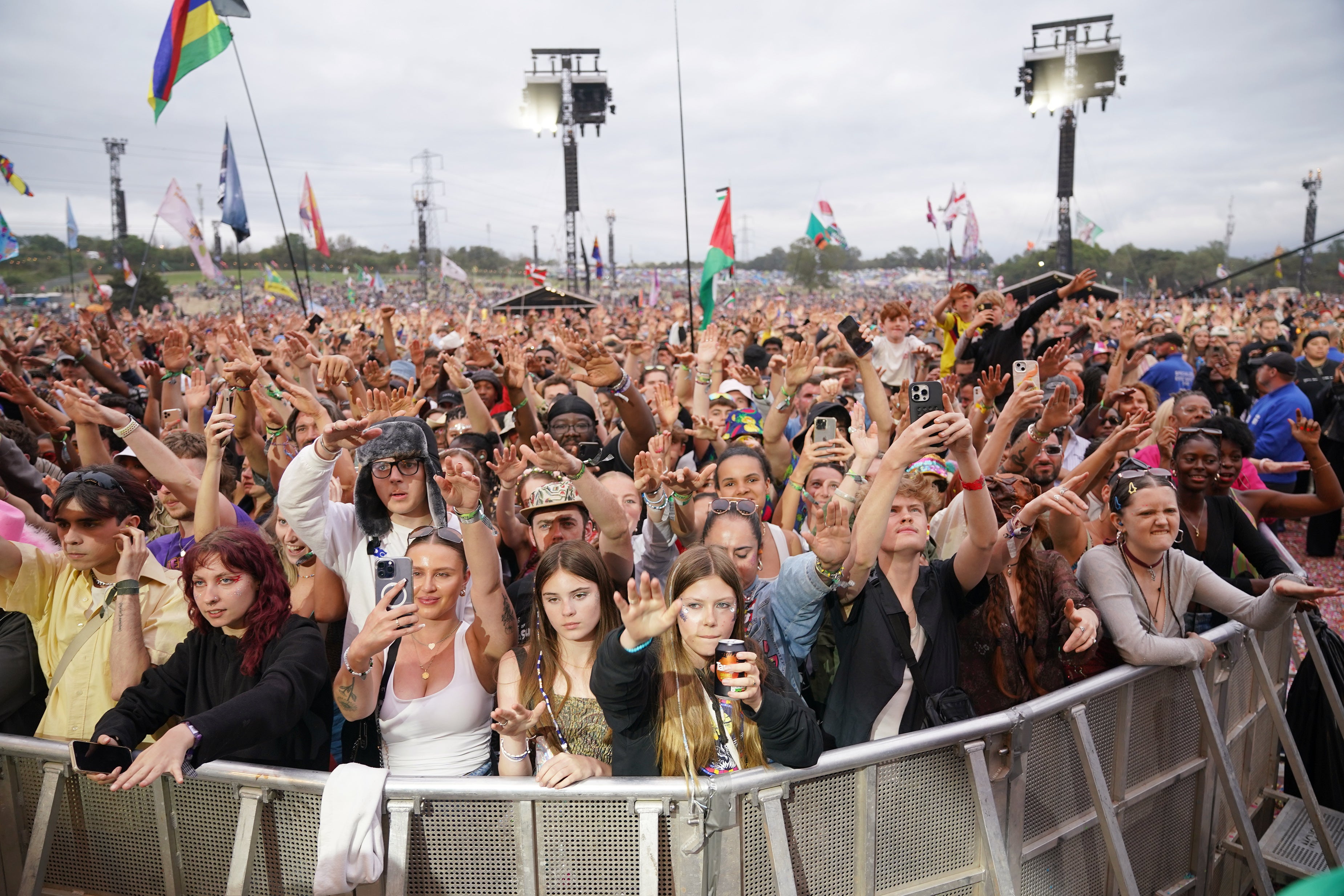Beyond Glastonbury: The joy of smaller festivals
Louis Chilton speaks to artists and organisers about the wonders of the UK’s independent festival scene – and the precarious position it now finds itself in


Who doesn’t love a music festival? Whether you’re playing cultural connoisseur, or simply fancy a big sesh in an open field, there’s nothing quite like one. While there’s no denying the inimitable euphoria of big beasts like Glastonbury, the lifeblood of the nation’s festival scene is just as much reliant on the panoply of smaller independent festivals. “I think I can feel the culture of a festival,” says indie rock musician Ezra Furman. “In my brain, there are festivals where people are just getting blackout drunk, and there’s a million bands, and a lot of corporate sponsors – and then there’s festivals that just feel homey, and feel like we can see a culture of kindness in the air.”
It’s not hard to tell the kind of festivals she is talking about: over the last few years, she has headlined events such as Manchester Psych Fest and Kettering’s Greenbelt, and performed at Green Man and End of the Road. They are part of a multitude of independent festivals that populate the country’s musical ecosystem, alongside events such as Wide Awake; We Out Here; Solfest; Shambala; Boomtown; Love Supreme – the list goes on. “Independent festivals are full of stuff,” says John Rostron, the CEO of the Association of Independent Festivals (AIF). “They’re hugely creative events, that are driven by these creative characters. Most independent festivals start because somebody’s had a party – a birthday, a gathering, a pulling together of a group of people.” It’s a sector that’s teeming with life and creativity – but one facing an uncertain future. Now, more than ever, festivals need support.
It goes without saying that festivals are big business. In 2022, 6.5 million people attended festivals in the UK, per UK Music’s most recent Here, There and Everywhere data report. A whopping £6.6bn was spent on music tourism nationwide. A host of the biggest festivals are all run by the same conglomerate. Reading and Leeds, Download, Latitude, Creamfields, Isle of Wight, London’s British Summer Time: all are owned and operated by Live Nation, the international company that also owns Ticketmaster. (You may recognise the name Live Nation from recent news headlines, when a now-scotched sponsorship deal with Barclays prompted a boycott from artists.)
“I’ve started to do less festivals than I could because a lot of them are unpleasant to do,” admits Furman. “Not all of them by any means. Festivals can really be wonderful and it is hard to predict. But I’ve developed a sense of which ones are gonna feel rushed, impersonal and crappy, and which ones are gonna feel good.”
End of the Road – one of those firm Furman favourites – is a 13,500-capcity festival held in Dorset each year at the end of August, as British festival season enters its twilight. The event embodies much of what’s great about smaller British festivals. A thoughtfully curated line-up (Little Simz, Wolf Alice and Bon Iver are among the artists to play there on the upswing); scenic countryside (with parrots and peacocks freely roaming the premises); and that indefinable sense of communal goodwill. “I remember going to a lot of big festivals when I was younger,” says Simon Taffe, one of the founders of End of the Road and its serving director and curator. “You feel like a herd of cattle a bit, don’t you? The whole magic of End of the Road is that intimate feeling – in the same vein of going to see your favourite band in a club in London."
Grammy and Brit Award-winners Wet Leg decided to form their band while riding a ferris wheel at End of the Road, with the express intention of performing there – which they did, last year, in a surprise set. Other than the dressing rooms, there aren’t any sort of backstage areas; the artists mill around, immersed in the experience. The line between audience and performer is porous – and one could very well grow into the other.
Smaller festivals also offer the chance to curate a line-up in a way that crafts an experience that is more bespoke. Keith Miller, the co-founder of London’s Wide Awake festival, says: “It’s stuff that you really believe in… You’re really excited to promote it rather than just picking some acts for the sake of it and doing another regurgitated lineup like a lot of festivals. You see quite similar headliners trotted around the whole of the UK.”

Staging an independent festival brings with it myriad complications – and the constant pressure to evolve. “Every year, festivals iterate,” says Rostron. “There’s always a change, because audience develops and tastes change. Let’s take a really obvious example. Many years ago, you’d go to a festival and you would not have a shower there. And now it’d be shocking if there wasn’t one. We’ve had that whole journey over the course of two decades. But while you’re in the middle of it, you don’t really notice that change. It just slowly happens.”
Always, it seems, there are solutions to be found. Wide Awake shares its site on Brockwell Park – and, therefore, its temporary infrastructure – with another indie festival, Mighty Hoopla. “Basically, the festival wouldn’t be able to exist without sharing the site,” says Miller. “It’s almost impossible for a festival now to build a good spec with good sound, and then to go through all the health and safety rigmarole – and you’ve got a great deal of customer expectation now.
Enjoy unlimited access to 70 million ad-free songs and podcasts with Amazon Music
Sign up now for a 30-day free trial
Enjoy unlimited access to 70 million ad-free songs and podcasts with Amazon Music
Sign up now for a 30-day free trial

“It’s quite a good story for people to beat up a festival, unfortunately. You know, people on Instagram. If you’ve got a bit of a messy event, or it’s kind of DIY, for example, then yeah, people are quite happy to criticise and you’re going to struggle to continue if you get bad press. It’s quite hard to do something extremely DIY these days, and that’s why we got together with other festivals – it means that we can have far better production.” This is where the ever-iterating nature of the festival scene can sometimes become a millstone: fans come to anticipate the sort of amenities made available at high-end festivals such as Glastonbury, and come into lower-scale events with unrealistic ideas.
For Beth Dawson, decor manager at End of the Road and one of the people responsible for the festival’s elaborate, immersive sets, the struggle is logistical as much as anything. “With small festivals, I think the big challenge is actually having the space to store all of the stuff,” she says. “So each year, the stuff we’re making is getting a bit bigger, as the festival becomes more popular. Sometimes you feel like we could make this ginormous thing. And you think, ‘Well, actually, where would we make it and how would we store it?’”
When festivals started reopening after the pandemic, it wasn’t just three years of changes that had taken place. It was two seismic events
But the problems facing the UK’s vibrant festival scene are greater than just storage and grumpy tweets. Like many other sectors of the economy, music tourism has been hit hard by the twin forces of Brexit and Covid. In both cases, the ramifications have been both direct (in new restrictions of movement from artists in the EU, for instance, or the suspension of festivals during the height of the pandemic) – and indirect (a weakened economy driving up prices of everything from beer to transportation).
“When festivals started reopening after the pandemic,” says Rostron, “it wasn’t just three years of changes that had taken place. It was two seismic events.”
Data shows that one in six UK festivals came to an end during the pandemic; the day before I speak to Rostron, Secret Garden Party became the 56th festival to call it quits this year. “A handful of them are the normal churn,” Rostron says. “You know, somebody’s days are just done, they booked a really bad line up, they haven’t put the showers in, you know – they haven’t moved along with the times. But the majority are to do with the financial impact of Brexit and the pandemic.”
The skyrocketing price of festival tickets is a point of frequent complaint among revellers; this year, a ticket to Glastonbury would have set you back more than £350. But with the price of everything needed to make a festival – including fuel and transportation costs, and the hiring of the musicians themselves – having risen sharply, both organisers and festivalgoers are feeling the pinch.

“I think the largest economic challenge that faces our industry really is brought about by there being less money in the average person’s pocket,” says Joe Barnett, the festival director of Dorset’s We Out Here. Compared to before the pandemic, the cost of delivering and erecting the temporary infrastructure needed to stage a festival has, he says, gone “through the roof”.
“That is obviously, in part, passed on to the customer,” he continues. “And the prices have gone up, which is not something that promoters want to see. Some people can afford and some people can’t, and that creates an even bigger conversation around affordability in the cultural industries. We as an organisation do not want to homogenise our audiences.”
The danger is not that festival culture would simply disappear: there is too great an appetite for it here. Rather, the risk is that the UK’s festival scene will become increasingly inhospitable to smaller independent ventures – that it risks losing its identity, in ways both tangible and philosophical. But for now, there’s still a wealth of inimitable festivals held in the UK, and organisers are constantly lobbying for ways to safeguard their future.
A key avenue for this is via government policy. Founded in 2008, the AIF is a nonprofit trade association representing 142 festivals across the UK. (Most range in size between 5,000 and 20,000-people capacities; the smallest is around 500 people.) These days, the AIF devotes much of its time to lobbying the government for changes to the UK’s live music sector. A campaign called Five Per Cent For Festivals is pushing for a three-year lowering of VAT on festival ticket sales from 20 down to 5 per cent – an idea that has already been adopted by a majority of European countries.
Barnett, who works for the AIF in addition to running We Out Here, explains: “We can [also] draw from a number of European states that give vouchers to 18-year-olds to access culture. I would love to see the UK government take on the chance to grow our sector and do something similar.”

Festivals do not belong to the young, but it’s imperative that they have a place there. “Gen Z have changed things enormously,” says Rostron, “because their formative years were put through this pressure cooker of the pandemic. Over 10 years, we’ve had huge changes in terms of what audiences want, what festivals can do, what technology can offer.”
And those younger festivalgoers matter for another reason – they might well be its future. Brighton-based post-punk band Squid have been a fixture of the festival circuit in recent years; in 2024, they’ve played events including Wide Awake and Glastonbury. “Independent festivals… it’s just kind of a bit more soul,” says lead singer Ollie Judge. “A bit more down to Earth, like they’re doing things for the right reasons. You can really tell when you’re at those festivals… it goes beyond music.” All members of the band have been going to festivals – notably End of the Road – since they were teenagers. Now they perform on their stages.
Getting young people into festivals is a crucial way of getting people into performing music in the first place. If they can’t afford to go, or if the right festivals simply no longer exist, then these avenues will start to dry up. And that goes beyond just festivals – it would be a problem for all of music.
End of the Road festival takes place in North Dorset from 29 August to 1 September. We Out Here takes place in mid-August in Wimborne St Giles, Dorset. Wide Awake will return in London’s Brockwell Park in May 2025
Subscribe to Independent Premium to bookmark this article
Want to bookmark your favourite articles and stories to read or reference later? Start your Independent Premium subscription today.

Join our commenting forum
Join thought-provoking conversations, follow other Independent readers and see their replies
Comments